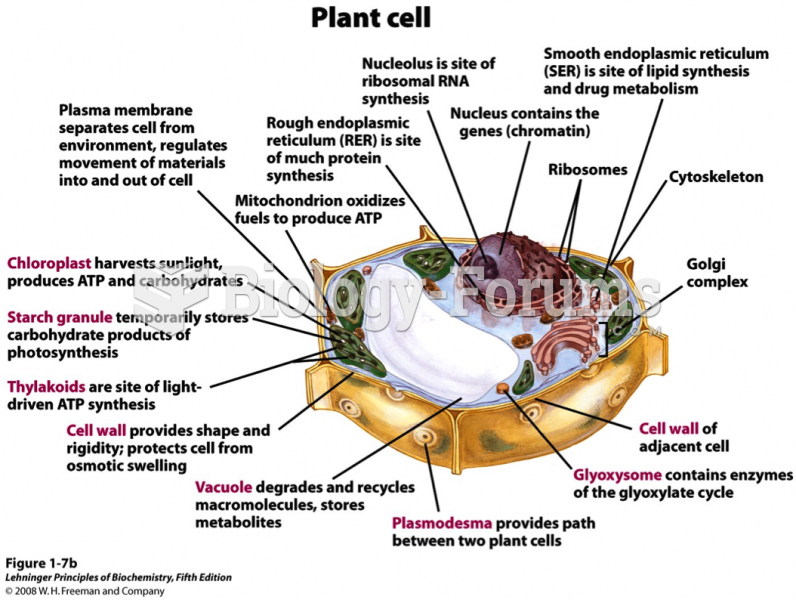|
|
|
People with high total cholesterol have about two times the risk for heart disease as people with ideal levels.
Asthma attacks and symptoms usually get started by specific triggers (such as viruses, allergies, gases, and air particles). You should talk to your doctor about these triggers and find ways to avoid or get rid of them.
Bacteria have flourished on the earth for over three billion years. They were the first life forms on the planet.
Most strokes are caused when blood clots move to a blood vessel in the brain and block blood flow to that area. Thrombolytic therapy can be used to dissolve the clot quickly. If given within 3 hours of the first stroke symptoms, this therapy can help limit stroke damage and disability.
Urine turns bright yellow if larger than normal amounts of certain substances are consumed; one of these substances is asparagus.







